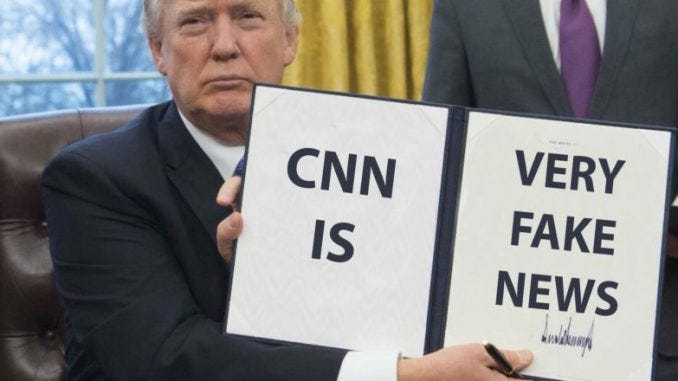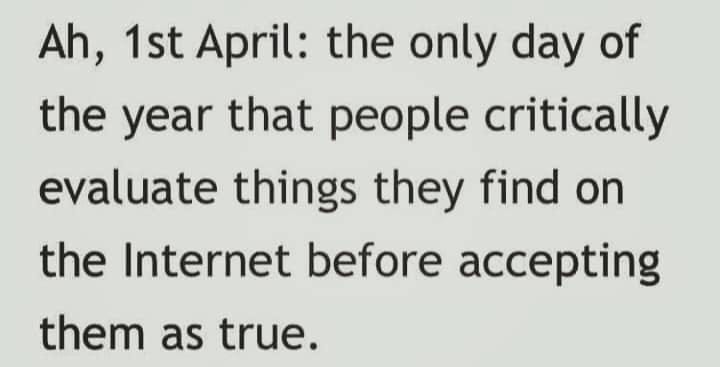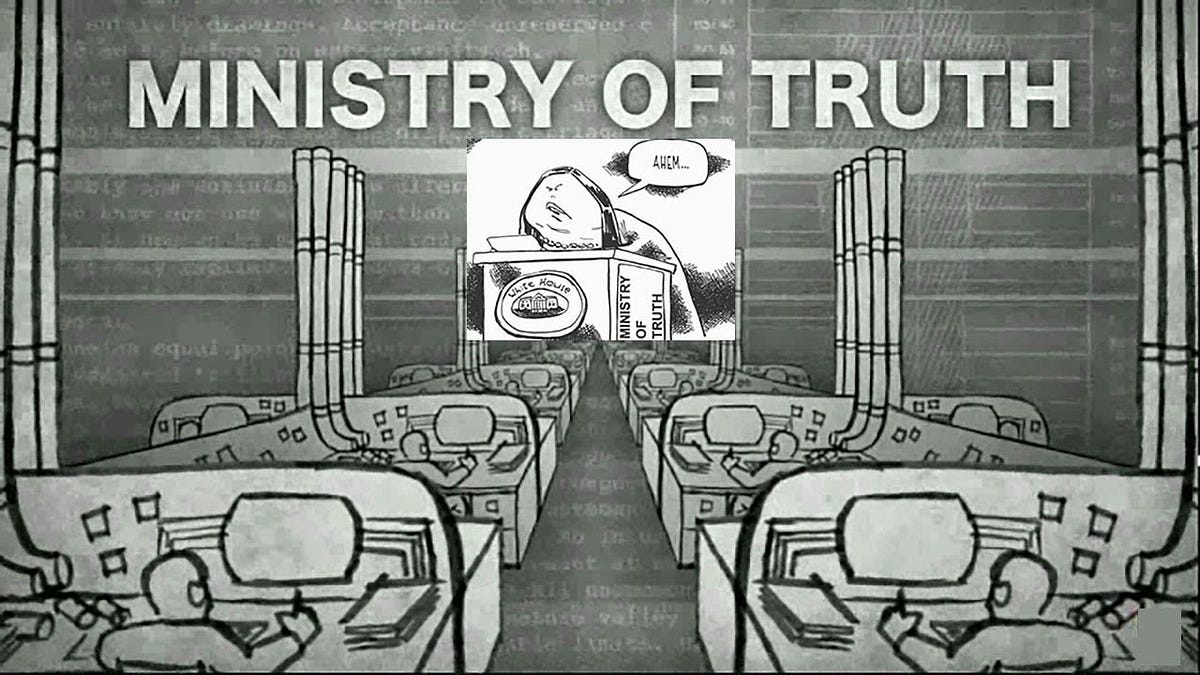Should you be afraid of “fake news”?
Published on the Medium, 4 April 2019
Over the past few years “fake news” have dominated public discourse, being blamed for anything from affecting electoral results to manipulating consumers, ultimately giving online social media and internet platforms a bad name.
So, what are “fake news” exactly?
The Cambridge dictionary informs us that fake news are “false stories that appear to be news, spread on the internet or using other media, usually created to influence political views or as a joke”. In short, therefore, false stories. “False”, in turn, means “not real, but made to look or seem real”. Ultimately, therefore, “fake news” seems to be unreal but plausible made-up stories.
If only things were so simple. Staying in the United Kingdom, its Digital, Culture, Media and Sport Committee of the House of Commons identified the following types of “fake news” in its relevant report: Fabricated content, manipulated content, imposter content, misleading content, false context of connection, satire and parody. It also added “micro-targeted messaging”, before finally recommending that the term be completely abandoned and either “misinformation” or “disinformation” are used instead.

The futility of suggesting new terms to replace a globally used one aside, the above are useful to demonstrate that, in fact, when we are talking about “fake news” we do not really know what we are talking about.

I think that the cause for confusion is that “fake news” is a contradiction in terms. News refers to facts. Facts cannot be fake — fake facts are, simply, lies. So, “fake news” are either facts or lies.

Lies are easier to deal with — in fact, there is not much to discuss about them, because all relevant issues have been resolved by law. In broad terms, If one lies then he or she is potentially committing a crime for which they can be called to answer in court.
So, if I post on the internet that “Martians have invaded Earth”, or that “politician X received a trillion Euros by businessman Y”, then in all likelihood I am committing a crime. Politician X or the public prosecutor can sue me. If they choose not to do so, for whatever reason, or if they do take me to court and I am acquitted on whatever grounds, the fact remains that my lies are assessable under a criminal law procedure.
Therefore, lies. Not “fake news”. Lies.

Facts are far more difficult to deal with. Instead of endlessly theorising, let’s work with a well-known fact: Greeks won the 10-year Trojan war.
There must be million ways how to report this news item (Homer gave us a famous one). The simplest way would be to say exactly that, and in fact that was indeed the case back then, when Agamemnon had arranged for phryctoriae to transmit immediately the news to Mycenae (giving his wife just enough time to prepare herself…). However, the simplest of additions in the above sentence immediately colours its meaning: The brave Greeks won the 10-year Trojan war, or Greeks won the brutal 10-year Trojan war, or Greeks won the 10-year war against the brave Trojans. Imagine what would happen if even more words were added.
What would be “fake news” in the above? Well, if we follow the Select Committee’s line of thinking, potentially each and every news report that added even a single word to the above sentence. The truth of each one resulting sentence could be challenged. However, well, this is exactly what adjectives do, they “clarify” a noun — but not everyone is obliged to agree with them.

Is this really a problem? I mean, who would be interested, and pay for, a simple transmission of the information that Greeks won the Trojans? No, this is not how humans function. We want explanation, we want an analysis, even gossip, if possible. In short, we want a story. A mere transmission of the fact is not interesting. A newspaper or a news agency running single-line facts (unless addressed to experts who can do the analysis themselves within their field of expertise) would quickly go out of business.
And stories, ever since Homer invented them, because they use adjectives and other literary tools, are inevitably subjective.
Therefore, facts. Not “fake news”. (Subjectively presented) facts.

An explanation for today’s witch-hunt against “fake news” is the way the term is used in modern politics. The prominent example of course is set by President Trump (not my idea, the Select Committee referred expressly to his case). President Trump has become famous by calling “fake news” all news items that he does not like. His example has been imitated by many politicians across the globe.

However, were “fake news” simply lies, politicians would have sued — and won in court. If they don’t, it is only because these “fake news” are “fake news” of the second type, that of (subjectively presented) facts. In democracies these do not give rise to claims in court, but politicians do need to fight them anyway. Hence the made-up term “fake news”.
So, “fake news” in today’s politics is nothing more than a made-up term used to denote facts that politicians do not like but can do nothing about them. It is the same as “bullshit” or “horseshit” cried on the streets, however this term has the immense benefit of being usable on camera.
If you ask me its ingenuity lies in the fact that it is double-edged, being able both to discredit swiftly on-camera and at the same time pander the “underprivileged and against-the-system” feeling shared by many voters today. At any event, let’s not get confused by the tricks and wordsmith abilities of politicians, however extraordinary.

After all, “fake news” use in politics in order to smear opponents is as old as humanity: Athenians were the first faced with it when all of their Hermaiwere vandalised prior to the Sicilian expedition. The process never stopped since, whenever people’s opinions needed influencing. During the last century this was made scientific through the advent of propaganda (or, more nicely, psychological warfare). Propaganda was a term mostly used during the tumultuous previous century and the preferred communication tool of its wizards was (surprise, surprise) radio, cinema and all other new means of mass communication. A lot of time has passed since, and now people treat what they hear on the radio or TV critically. Admittedly, regulation has intervened too, with Broadcasting Regulatory Authorities operating in practically all countries. However, it has been a long process — and one should keep in mind that Facebook just celebrated its 15th anniversary.

So how are today’s “fake news” any different than what Cleon did since the days of the Athenian democracy? I suppose that the internet makes all the difference. This is clear when one reads, for example, the Select Committee’s report: A few pages on the problem definition followed by dozens of analyses on micro-targeting of people on online platforms. So, “fake news” is not actually the problem, online platforms and the internet are.
Online platforms are new and as such have not been assimilated by individuals and social sciences alike. Being offered for free the product is, in fact, people whose personal data are ruthlessly processed in order to extract whatever added value there is to extract. And, indeed, the system is open to exploitation both by trusting individuals and by unscrupulous marketeers. And also, the internet’s multiplying effect has been found court-assessable on both sides of the Atlantic, in the Grokster and Google Spain cases, where supreme courts found that otherwise lawful actions have such impact over the internet that are ultimately rendered unlawful.

In spite of all that, there is only so much judges and laws can do. If people choose to believe that Martians are controlling the minds of politicians, well, no “fake news” regulation or fact-establishing algorithm can fight that. If people choose to trust what they hear in pubs and cafes (the equivalent of Facebook in the real world), this does not mean that coffee drinking needs regulation.

Brought down to its constituting parts, therefore, “fake news” is either criminal content (lies) or subjective transmission of facts, or propagandarun over the internet. All are known and have been dealt with before: Lies through recourse to courts, opinions through democracy, and propaganda through education. Consequently, none deserves any special treatment or be the cause of any regulatory intervention.

After all, if we turn to regulation and fact-checking algorithms and platforms to fight “fake news” who is to say that these will do their job well? And, wouldn’t they all lie dangerously close to a Ministry of Truth?
As far as its use in modern politics is concerned, “fake news” is just the latest political jargon, a slogan, a catchphrase. Politicians use it ingeniously to express annoyance and nod secretly to their voters. On the other hand, when it comes to “fighting fake news”, well, to me this all is nothing more than disgruntled self-proclaimed elites shouting “foul play” to losing a game (the President Trump election, Brexit, the rise of radical parties in Europe) that they persistently fail to understand. Instead of trying to address the real problem they choose to hide before allegations that clever politicians have gamed the system. I believe that this is in fact the only real danger behind “fake news”: Hiding the real issue from us, tricking us into believing that all our problems are due to the lack of understanding of others.
So, no, you do not need to be afraid of “fake news”. In Kavafy’s words, “Laistrygonians, Cyclops, wild Poseidon — you won’t encounter them unless you bring them along inside your soul, unless your soul sets them up in front of you”. “Fake news” simply do not exist if you choose not to see them everywhere or, much more, use the term yourself.
